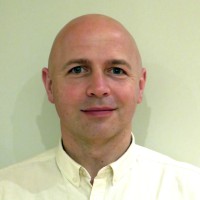Nocebo Hypothesis Cognitive Behavioural Therapy (NH-CBT) for Functional Neurological Disorder (FND)
This workshop represents a basic training in using NH-CBT clinically. Participants will learn how to treat functional symptoms of weakness, fixed dystonia, imbalance/dizziness, tremors, tics, and non-epileptic seizures. They will also learn a basic overview of predictive coding models and nocebo effects, in order to help them field the inevitable questions about causation of FND that they will be asked in clinical practice.
NZPsS Member: $290; Non-Members $340
NH-CBT is the name given to a treatment protocol developed over 13 years ago by Dr Matt Richardson, following some successful experimentation with a client with functional neurological symptoms. The treatment protocol achieved complete or almost complete symptom resolution in 12 of the next 13 inpatients, usually within 2 weeks. That case series was published in 2018, and helped attract funding for a randomized controlled trial. This has now been published (in Movement Disorders), and saw 85% of intervention group participants reach full symptom resolution, with significant differences in rate of full recovery, reduction of observable functional symptoms, and reduction of mobility aid use when compared to an active control treatment. There is also preliminary evidence that NH-CBT may be effective in treating non-epileptic seizures (70% of a small consecutive case series became seizure-free).
The theoretical basis for the treatment itself is consistent with contemporary predictive coding models of FND, in that it treats FND as if it is a self-perpetuating and sometimes extreme version of a nocebo effect.
This workshop represents a basic training in using NH-CBT clinically. Participants will learn how to treat functional symptoms of weakness, fixed dystonia, imbalance/dizziness, tremors, tics, and non-epileptic seizures. They will also learn a basic overview of predictive coding models and nocebo effects, in order to help them field the inevitable questions about causation of FND that they will be asked in clinical practice.
This workshop is suitable for anyone who treats, or wants to treat FND – including Physiotherapists, Clinical Psychologists, Neuropsychologists, Occupational Therapists, Nurses, and Medical Professionals. Speech and Language Therapists are also welcome, although this initial workshop will not include any specific training about functional speech and swallowing issues. This, as well as other less core aspects of FND treatment, will be covered in online modules that will be developed and made available in the future.
Outcomes
At the end of training, participants should be able to:
- start practicing NH-CBT with people with functional neurological symptoms.
- understand the basic ideas regarding the evidence that functional neurological symptoms are the result of what could be described as a nocebo effect.
- develop some ideas about how this hypothesis might influence their practice with all patients / clients with structural neurological damage or disease.
PRESENTER: DR MATT RICHARDSON
Dr Matt Richardson is a clinical psychologist / neuropsychologist who predominantly works at the Puāwai Rehabilitation Unit at Wakari Hospital, Dunedin, New Zealand (a regional neurorehabilitation service).
He was born and trained in the UK, moving to New Zealand in 2008, when he started working with people with FND for the first time. He soon became dissatisfied with traditional theories of FND, that implicate psychological trauma and stress as the core causative factor, and devised a novel treatment in 2011, now named Nocebo Hypothesis Cognitive Behavioural Therapy (NH-CBT). Since then, he has been gathering evidence regarding the effectiveness of this treatment, and has completed a randomised controlled trial of NH-CBT for functional motor symptoms that saw 85% of people in the intervention condition achieving full symptom remission. He has also completed a pilot consecutive case series in the use of NH-CBT for the treatment of functional seizures, with all participants with daytime seizures who completed the treatment becoming seizure-free at the end of the treatment period.
He has been training rehabilitation professionals how to use his treatment protocol across Australasia since 2018.
